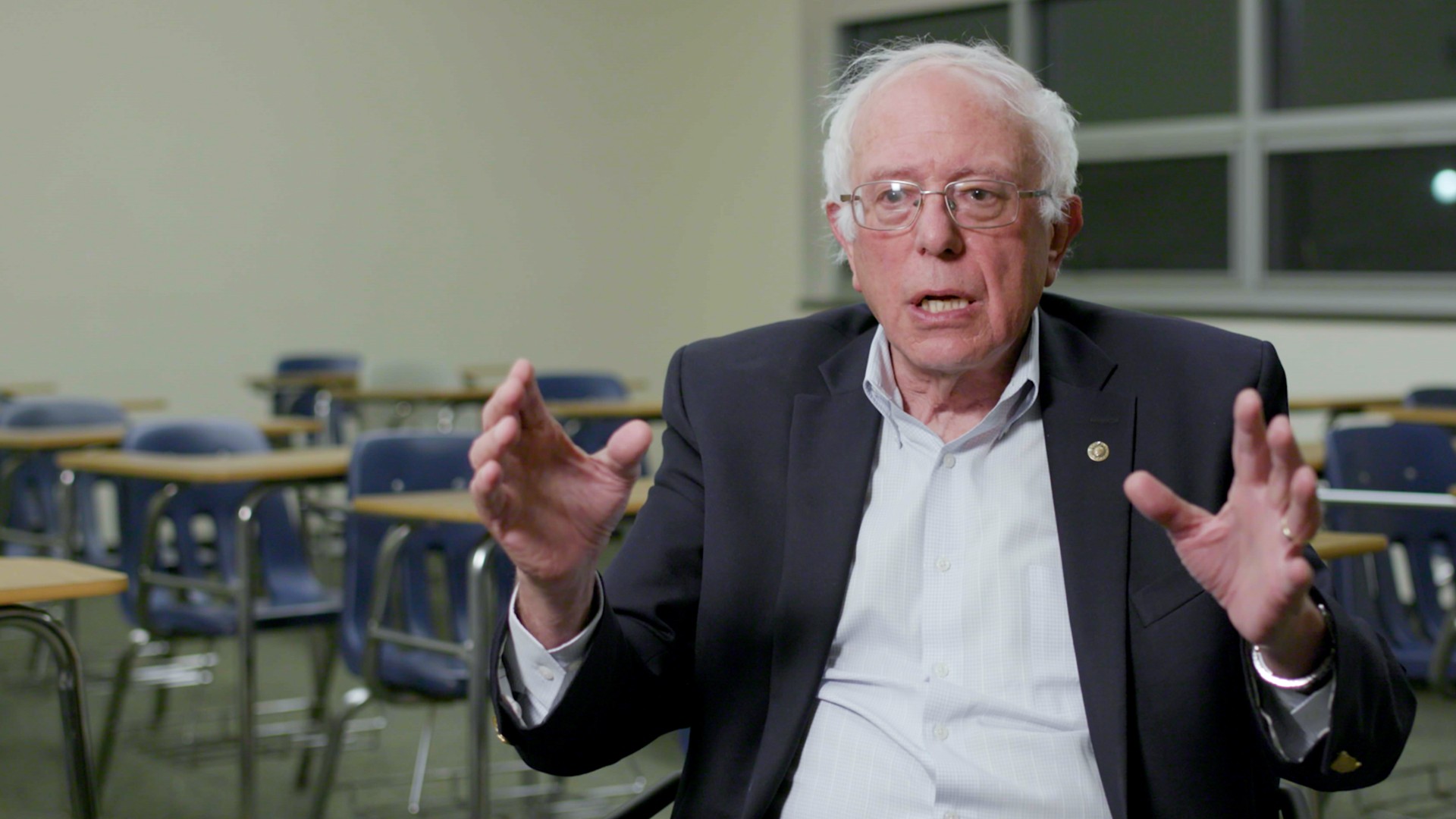Billions of dollars are left on the table each year for students hoping to get financial aid for college, but aren’t sure how to get it. Every year, 45 million Americans are eligible for financial aid , but only 30 million students start the FAFSA application process. From there, only 22.5 million complete the entire process.Enter Frank, an online platform that helps move students past the outdated Free Application for Federal Student Aid (FAFSA) to streamline the process of making college more affordable. By using smart technology that pulls from Common App accounts and tax returns, it cuts down what could potentially be hours of filling out various paper forms and waiting to hear back on their status into a more efficient process that can take minutes, and keep it all together in one place.
Advertisement
Founded by 25-year-old female CEO Charlie Javice, the estimated financial aid awarded through Frank to date since they went live earlier this year is $4.5 Billion across 160,000 families.“The outstanding student loan debt has reached $1.4 trillion in the United States, surpassing both auto debt and credit card debt,” Javice told VICE Impact. “With the default rate at 40 percent, student debt is a major systemic risk to the U.S. economy and individual families who may not take their student loans into bankruptcy.”
So why is the system so complicated, if all of this money is available? Javice has her theories, one of which includes the fact that lawyers and politicians, whose job it is to make sure financial aid from the government is allocated in a secure way, haven’t bothered to translate the jargon they’re so familiar with to layman’s terms when they create forms for young people and their families to fill out. Frank does that translation for you, making it easier to understand exactly what you need to input and how.“The way financial aid is allocated hasn’t’ changed since 1972 when they first built out the formula called the Expected Family Contribution, which is determined based on variables like household income, assets, how long you’ve lived in a state. It all boils down to how much you should have to pay out of pocket,” said Javice. “The forms have been worded by lawyers which make sit hard for real people to understand. Stuck in a system where there’s a bunch of data inputs that need to come from all different places.”“We’ve been told by students that it takes days or weeks to understand the questions and information required.”
Advertisement
Check out more videos from VICE:

Their system, then, is a practical solution to what is an otherwise tedious and time-consuming process, one that a single human error—think adding an extra ‘0’ to your household income, or adding your home as an asset when you’re not required to do so—can completely derail.“We’ve been told by students that it takes days or weeks to understand the questions and information required,” she said. “It’s confusing because there are several different deadlines and several different forms, so people are often left wondering what they are actually filling out.”One of these more arduous tasks is filling out the forms that come with the verification portion of the process.
For example, you say you have siblings, you need to obtain copies of their birth certificates. If your family has experienced divorce, you also need to provide that piece of paper, and they’ll also ask for a year’s worth of paystubs. The set of forms that comes with this part of the FAFSA application can take weeks to procure, and the hundreds of questions can become redundant. Frank can pull some of this information from public government databases, and in other cases, it’s as simple as snapping a photo of your tax return, condensing all of those weeks and paper-hunting missions down to about a minute’s worth of data input on your smartphone.“The way financial aid is allocated hasn’t’ changed since 1972."
Advertisement
Frank is smart enough to determine which questions on the FAFSA actually do apply to you, like name, age, and household income, and weeds them out from the rest that, based on the info you input and the info they’re able to aggregate from the internet, are not.“That means you see 30% of the questions versus the government form. A high school-aged student should not, for example, need to be asked if they've are veterans,” Javice says.When you choose to “opt in” you allow Frank to start its search, helping you skip about seven steps you’d have to take manually.Frank is able to remain a free service in its basic form due to the fact that it operates on venture capital funding, but also employs advocates to help students negotiate their financial aid packages, which many folks don’t know is possible—it comes in the form of a premium add-on for $500, but only if they are able to win you additional aid of $5,000 or more.Kole Rosin is a pre-med student at NYU, has become an intern with Frank after using it helped him navigate the college process, and is paying it forward to assist other families who just don’t know where to start when it comes to applying for financial aid.“It is obvious that the government is not doing a great job of keeping students informed. Additionally, a lot of students struggle with providing the necessary tax information in order to complete the application,” he told VICE Impact. “Although the government's FAFSA has a service that helps students to connect their tax information, it can be very confusing and sometimes ineffective. Because the definition of family varies from student to student, it is sometimes difficult for applicants to determine exactly which parent, if not both, they need to provide information for.”
Advertisement
The add-on service of aid negotiation starts with a phone call with a Frank representative to help them understand the challenges the family is having with their financial aid. After that, the rep collects the information necessary to create an aid appeal letter—the documents that are useful to formulate an aid appeal would consist of things like their FAFSA, their Student Aid Report, aid package awarded by the school, pay stubs, marital licenses, rent payments, electricity bills, other kids / siblings enrolled in college or private school. After the letter is sent, Frank will work with the aid office to come to a resolution that, ideally, allows the student to enroll at the school at a lower tuition fee.
“Aid appeal has increasingly become important as the FAFSA requires tax returns 2 years prior to the filing year. As you can imagine much changes in a family in that time. You can lose a job, get divorced, have medical issues,” Javice said. “We correct this FAFSA mess with the appeal.”“Without holding institutions accountable, the U.S. has an unfortunate outcome in education,” Javice said, meaning fewer students would be able to afford college. But the odds are slowly growing thanks to things like this tool—especially for immigrants whose green card status might prevent them from even accessing federal financial aid.“Without holding institutions accountable, the U.S. has an unfortunate outcome in education.”
Advertisement
Emanuella Amuako was legally adopted by her aunt-- a U.S. citizen -- after moving to the United States from Ghana, and obtained permanent resident status in order to file FAFSA for college. She has dreams of becoming a biomedical engineer. She was able to start her FAFSA with Frank during a FAFSA event at her Technology High School in Newark, New Jersey.“I really didn't have any information about FAFSA before Frank came to my school, other than the fact that I knew that the application process was tedious, time consuming, and confusing. I also know that the process will be extra complicated for me because of my residency status,” she said, adding that the process would have been a lot more difficult without Frank there to offer guidance. Without their help, she says, she would have likely given up, a decision that would have undoubtedly have an impact on her future.Frank is still in the process of helping her file her FAFSA, making sure all of the documents are in order to get her a Social Security Number once she has filed for her green card—anyone who wishes to file FAFSA must have one. She says that representatives frequently call in to find out information as the process moves forward, and that they text and email her to offer help, which is the “motivation that keeps my hopes up. “Financial aid is a huge issue for many students, especially in communities like mine because most people's parents do not have the money to pay for college, so they need financial aid in order to pay,” she said. “These students are then not afforded the same opportunities as other students our age.”
